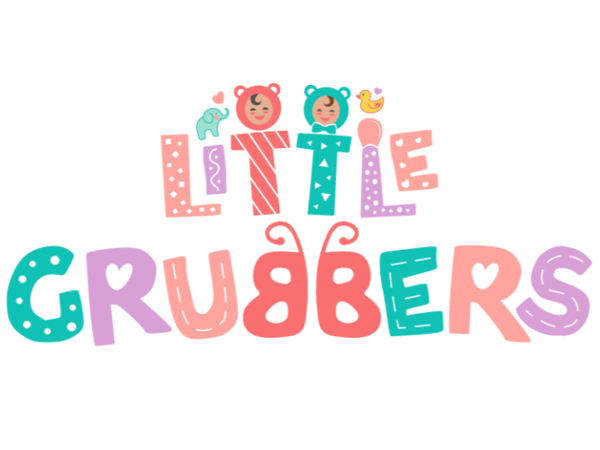Feeding your baby can be a delightful, yet challenging experience. Between figuring out the right foods, learning how to handle picky eating, and navigating mealtime messes, it’s easy to feel overwhelmed. But don’t worry—small adjustments can make a big difference.
In this post, we’ll share five common feeding time mistakes to avoid, along with actionable baby feeding tips that will help make mealtime smoother for both you and your little one. These tips can also encourage feeding independence, a key milestone for babies as they grow.
1. Forcing Your Baby to Eat
It’s tempting to encourage your baby to eat that extra bite when you know they need to eat more. But forcing your baby to eat can backfire.
Why This is a Mistake:
- Babies have a natural ability to regulate their hunger.
- Pressuring them to eat can cause stress and negative associations with food.
- They may refuse to eat, creating a power struggle.
What You Can Do:
- Let your baby decide when they’re full.
- Offer food, but respect their appetite.
- Trust their hunger cues and try again later.
Baby Feeding Tip: Encourage feeding independence by following your baby’s natural hunger patterns. Let mealtime be a calm, enjoyable experience rather than a battle.
2. Offering the Wrong Texture at the Wrong Time
Introducing textures at the right time is crucial for your baby’s eating development. Offering purees too late or solid foods too early can disrupt their progress.
Why This is a Mistake:
- Offering solid foods too soon can cause choking or digestive discomfort.
- Sticking to purees for too long can delay the development of chewing skills.
What You Can Do:
- Start with smooth purees around 6 months.
- Gradually introduce soft, mashed foods as your baby approaches 8-10 months.
- Use tools like the best baby spoon, such as the 3-in-1 Baby Spoon™, to make transitions easier.
Baby Feeding Tip: Be patient! Every baby moves at their own pace. Let them explore new textures when they’re ready.

3. Allowing Too Many Distractions
Mealtime is the perfect opportunity to bond with your baby. But allowing distractions—like TV, toys, or your phone—can interfere with your baby’s ability to focus on eating.
Why This is a Mistake:
- Distractions can make it hard for your baby to focus on their food.
- Babies might miss important hunger orfullness cues.
- It can make mealtime stressful rather than enjoyable.
What You Can Do:
- Create a quiet, calm mealtime environment.
- Save toys and screens for playtime, not mealtime.
- Focus on your baby and engage with them during meals.
Baby Feeding Tip: Make mealtime a special bonding time. Be present and engaged to encourage positive associations with food.

4. Skipping Variety
It’s easy to get stuck in a routine of offering the same few foods every day, but variety is key to building a healthy diet. Skipping variety can lead to picky eating later.
Why This is a Mistake:
- Offering the same foods repeatedly can limit your baby’s nutrition.
- Babies need exposure to different flavors, textures, and nutrients.
- Lack of variety may make it harder to introduce new foods as your baby gets older.
What You Can Do:
- Introduce a variety of fruits, vegetables, proteins, and grains.
- Try new flavors and combinations, like sweet potato and apple, or avocado and banana.
- Don’t hesitate to get creative—offering variety helps develop an adventurous eater.
Baby Feeding Tip: Looking for nutritious meal ideas? Check out our baby food recipes for fresh and fun meal inspiration.

5. Inconsistent Mealtime Routines
Consistency is key when it comes to feeding your baby. An inconsistent mealtime routine can cause confusion and make feeding time stressful for both of you.
Why This is a Mistake:
- Babies thrive on predictability and routine.
- Inconsistent meal times can disrupt your baby’s natural hunger cues.
- Lack of a routine can make mealtime stressful and disorganized.
What You Can Do:
- Set regular mealtimes each day.
- Aim for three meals and a couple of snacks, depending on your baby’s age.
- Create a predictable mealtime routine to help your baby feel secure and comfortable.
Baby Feeding Tip: Establish a routine that works for you and your baby. This helps encourage feeding independence and sets a positive foundation for healthy eating.

Conclusion: Embrace the Journey of Feeding Independence
Feeding your baby doesn’t have to be a stressful experience. By avoiding these common feeding mistakes and following these helpful baby feeding tips, you can create a calmer, more enjoyable mealtime for both of you. As your baby grows, feeding independence will naturally develop, and with the right tools, you’ll see them thrive.
If you’re looking for the best baby spoon to help with the transition to self-feeding, check out the Little Grubbers 3-in-1 Baby Spoon™. It’s the perfect tool to encourage your baby’s growth and independence at the table.
Ready to make mealtime easier and more enjoyable? Visit Little Grubbers and explore our 3-in-1 Baby Spoon™ today!

